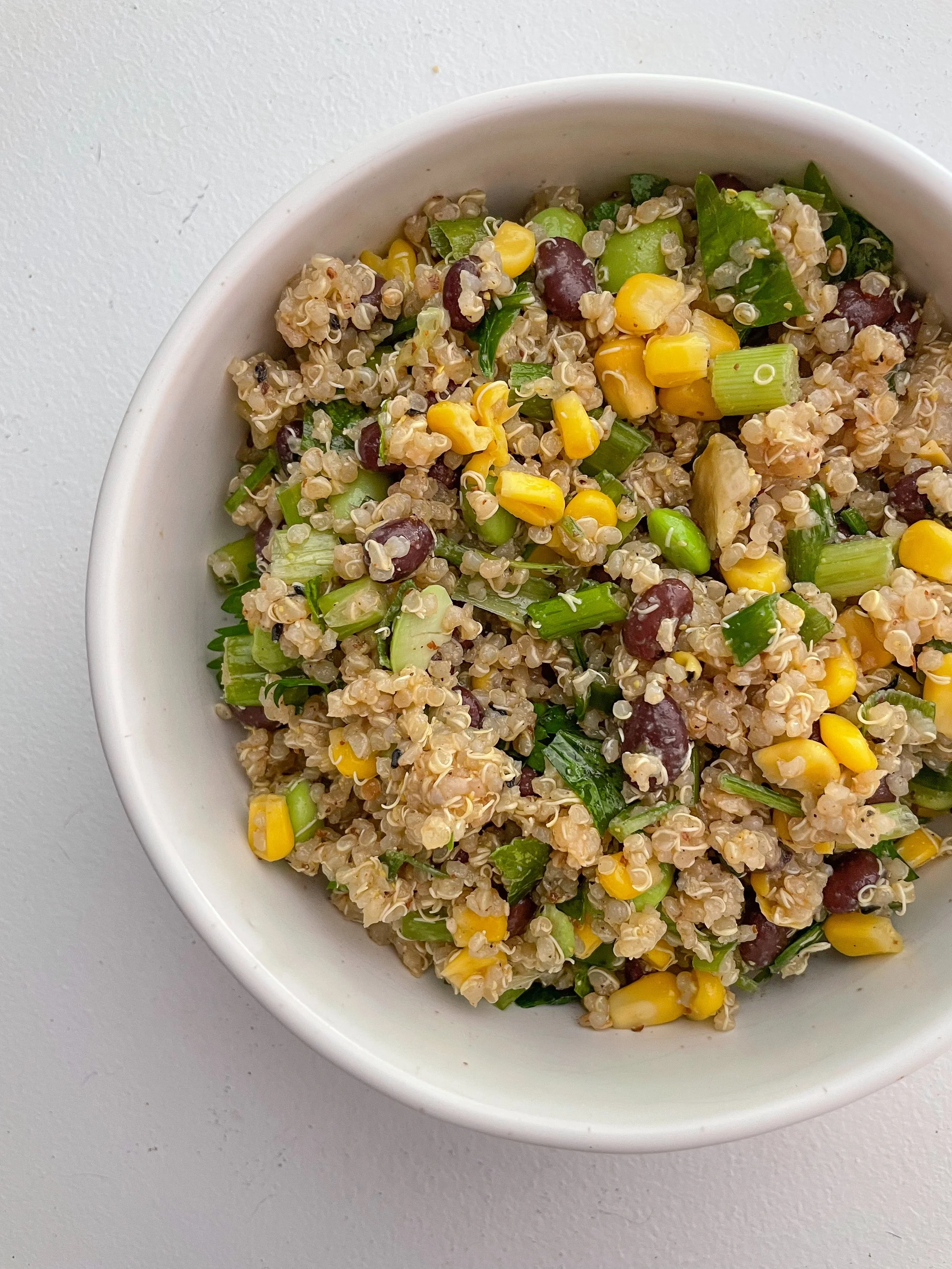The 4 Types of PMS

So many women suffer from PMS unnecessarily. It’s so common, but it’s not normal - it’s a sign of a hormone imbalance in the body and more often than not, it’s due to gut health and mineral levels. Check out my HTMA blog post to learn more about mineral levels.
PMS A: anxiety
Often seen among estrogen dominant clients with lower progesterone. Progesterone is the calming sex hormone that increases production of GABA, a neurotransmitter that helps sleep. Mood swings, water retention, painful periods, shorter cycles.
PMS D: depression
Feeling down at the same time each month. Not as common, but due to contraception this is occurring more. Low estrogen in relation to progesterone. I recommend getting into nature and moving your body. Breath in the fresh air and enjoy those post exercise endorphins.
PMS C: cravings
You earn all the sweet treats! If ignored, this will impact your blood sugar levels and insulin. In ideal situations, the steroid hormone cortisol counterbalances insulin, but it stressed then it will inhibit production. The liver stores and manufactures glucose based on your insulin & glucagon levels.
PMS P: pain
Period cramps!! This can be due to pro-inflammatory prostaglandins - they’re also the reason you get loose bowel movements during menses. If you eat high sugar, meat, dairy and canola this will contribute to inflammation.
After being put on the birth control pill for skin at 16 then later getting IUD’s, I now celebrate a true bleed. I got my period within a month of removing all contraception and I know my lifestyle, diet and supplements made the transition smoother. DM me with any questions or openly share your experience.
There are many lifestyle and nutrition reasons these symptoms arise. One of them will be linked to stress - take my adrenal fatigue checklist here!
There is so much we can do to support your hormonal health, gut and mineral levels. Learn more in services.
Jordan, gut and hormone nutritionist

Your guide to everything you need to know about protein. How much protein you need, meals ideas, plant-protein foods and perimenopause.
As a gut health nutritionist, I give you practical tips, plant-based foods high in iron and a recipe. I also explore reasons why your ferritin may be low.
There are so many different types of magnesium, it’s overwhelming. Thanks to my work experience student, we have complied a chart and a description of each type so you can make an informed decision. Curious to learn your magnesium levels, book in for a hair mineral analysis test.
A week of gut health tips to get your microbiome thriving! Easy to incorporate with a focus on diversity and plants by Jordan Bruce, a holistic nutritionist.
There is so much misinformation about soy consumption. Read why this nutritionist, Jordan Bruce, recommend you eat soy food.
Great for period pain, inflammation, liver detoxification, gut health protocols and hormone balance
Everything you need to know about flax! Why you should include it in your diet and how to prepare
Want to include more plant protein for health reasons? Not sure where to start? Here’s 9 of my favourite plant protein sources and my thoughts on each one!
Paleo? Keto? Let’s stop these short term diets and move towards something more sustainable. My top 6 gut health tips to ease into 2024
Everything you need to know about the bacteria H. pylori and how to support it naturally
Let’s dive into how you can improve constipation, I’ve got a tip for you! Cover image thanks to the book, Gut.
Your nervous system impacts your IBS, digestion, hormones and mood! Read up about the vagus nerve with actionable tips you can take today.
1/10 are diagnosed with endometriosis and it often takes a decade to get a diagnosis. Learn the symptoms here in this blog post!
Read this list to ensure you’re supporting your hormones! Food is powerful and can impact our sex hormones.




























